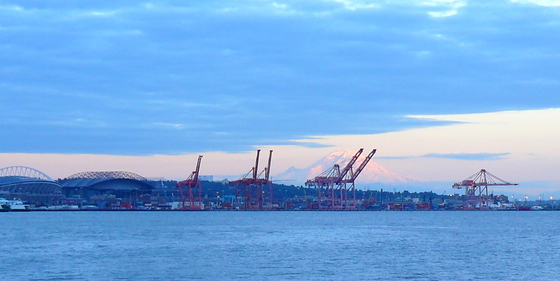Let's look at a notion that revolutionizes how we travel. Two notions, in fact.
The first: a concept that obliterates the need for a personal, private, selfish car. Sure, taxi cabs have been around forever, but you know how that worked out: smelly, unsafe vehicles piloted by greedy, deliberately ignorant drivers with no incentive to improve the system. Ugh.
Second: hotels. Some grand, of course, most not so much. The value for the owner was in the real estate, not in service that created loyal customers (except at the very top end). Conrad Hilton had the right idea, but that was two generations ago: a worldwide network of hospitality. All downhill from there.
Today, short-haul transportation is revolutionized by smart phones. You don't have to "call" a cab company dispatcher and wait for a surly driver to show up; you see who's nearby on your phone, tell the app where you want to go, and you get a commitment right away. Often half the price. By the way, this has nothing to do with "ride-sharing," a pejorative misnomer the traditional cab companies were quick to pin on Uber et al.
And a visit to Aunt Minnie in Minneapolis, to whose house-cats you're fatally allergic? No need to forgo the visit (or the inheritance). Stay in the neighborhood, but at someone else's house. Another app, a bed & breakfast nearby. No chain hotels, no haggling over corporate discounts, done.
Hey, not so fast. Two legacy industries threatened. The cabbies and their medallions (huge cash generators for municipalities on the one hand), and hotels (with lodging taxes, etc) on the other. Predictably,a hue and cry from both camps whose oxen are being gored.
If I were a hotelkeeper trying to pull up the drawbridge, I'd align myself with conservative politicians but progressive public sentiments. "Uber drivers are rapists," for example, played pretty well. Today's version: Air BnB takes affordable housing off the market. Tim Burgess carries that torch, even though there's not a lot of credible evidence to support it. Raw numbers? In Seattle, assuming full-time use of every registered Air BnB apartment or private room, perhaps 5,000 units. This in a city with 100 times that many residences. Take them off the housing market and what happens? Nothing. No effect, zero. Air BnB units are not commercial real estate that would otherwise be used as rental housing. What they're doing is generating tourism revenue. Are they taking anything away from existing hotel properties? Again, not at all. There are more hotel rooms in Seattle than ever before, more hotels under construction, in fact the entire Air BnB phenomenon is predicated on the insufficient supply of hotel space.
So here's a word to Councilman Burgess and gang: wrong tree.

Leave a comment